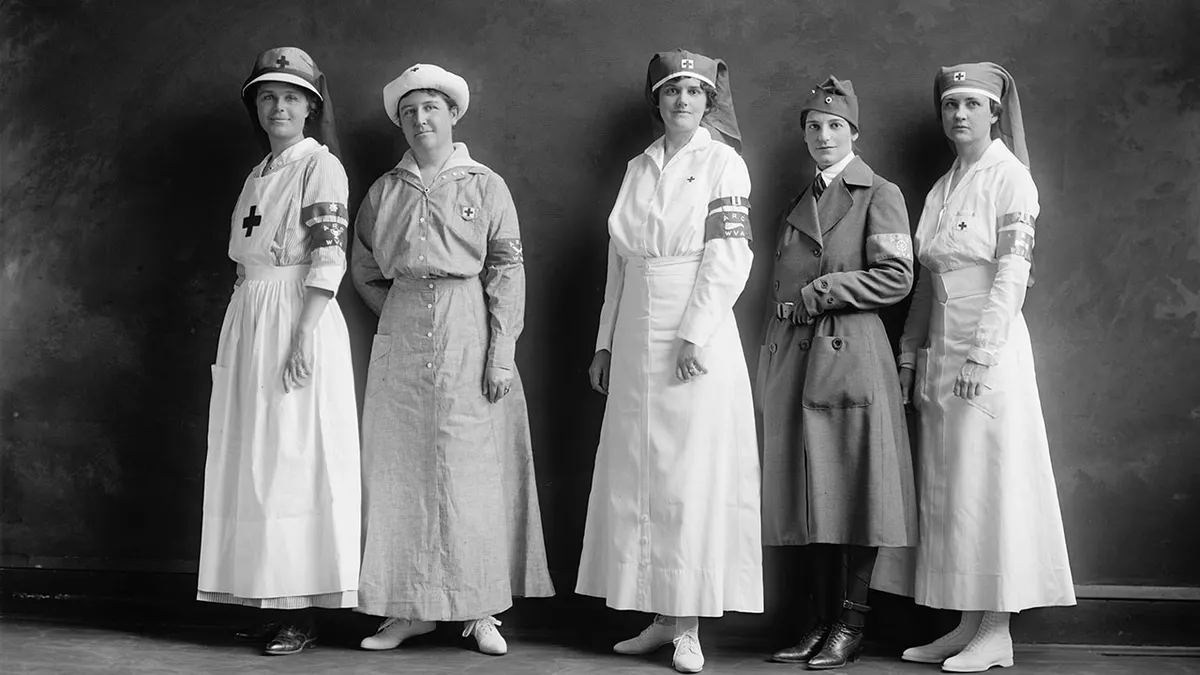Clara Barton

Clara Barton launched the American Red Cross, an organization that would turn compassion into action in times of war, natural disasters, and crises.
Biography
Clara Barton was a force of nature long before the Red Cross ever existed. Born on Christmas Day in 1821 in Oxford, Massachusetts, she was the youngest of five children and painfully shy as a child. But shyness didn’t mean weakness. By the time she was 18, she was teaching school. By 24, she had opened a free school in New Jersey, the first of its kind. And when a man was hired to run it at double her pay, she quit—because she refused to accept a world where women were treated as less.
In 1854, Barton became one of the first women to work at the U.S. Patent Office in Washington, D.C., earning the same salary as her male colleagues. But political pressure pushed her out, a preview of the resistance she’d face again and again. She returned to the job in 1860, just before the Civil War would forever alter her path.
When war broke out, Barton didn’t wait for orders. She gathered supplies, followed soldiers to the front lines, and became known as the 'Angel of the Battlefield.' She had no formal medical training—just guts, grit, and relentless compassion. Her battlefield work saved lives and brought humanity into the chaos of war.
After the war, Barton used her personal records to locate more than 20,000 missing Union soldiers and mark thousands of graves. She didn’t just offer comfort—she delivered justice and closure for families torn apart by war. She even testified before Congress about her experiences, forcing the government to listen to a woman’s wartime truth.
A trip to Europe introduced her to the International Red Cross, and she saw a vision for America: an organization ready to respond in times of crisis with speed, care, and neutrality. Barton spent years pushing for the creation of the American Red Cross, writing, lecturing, and lobbying. Her voice finally broke through. On May 21, 1881, the American Red Cross was born. By 1882, the U.S. had joined the Geneva Conventions, enshrining humanitarian aid into international law.
Barton led the American Red Cross for 23 years. Under her leadership, the organization responded to natural disasters, war, poverty, and homelessness. She built shelters, coordinated aid, and showed what volunteer power could really do. Even after stepping down in 1904, she founded the National First Aid Association and advocated for emergency preparedness and women’s rights.
Clara Barton passed away in 1912, but her impact never did. She built more than a humanitarian organization, she built a legacy of compassion in action. She didn’t ask for permission. She asked where the need was greatest and then showed up with everything she had.
Clara Barton proved that service isn’t about titles or training, it’s about showing up when others. She transformed battlefield nursing into a national mission, refused to accept a world where women were sidelined, and brought one of the world’s most important humanitarian institutions to life. Because of her, the Red Cross has become a global symbol of hope, relief, and resilience. Barton’s story reminds us that one person, moved by courage and conviction, can organize compassion into a movement. She didn’t just treat wounds—she redefined what leadership, service, and justice could look like. She reminds us that being brave isn’t about being fearless, it’s about stepping forward anyway.
?
How did Clara Barton challenge gender norms of her time?
Why was the founding of the American Red Cross such a revolutionary act?
What made Barton’s leadership style so effective during disasters and wars?
How does the Red Cross reflect Barton’s vision today?
What does Barton’s life teach us about turning personal conviction into lasting change?
Dig Deeper
Explore the life of Clara Barton and how she founded the American Red Cross—changing how America responds to crisis.
Discover more

Fannie Lou Hamer
Fannie Lou Hamer turned her pain into power, becoming the thunderous voice of the Mississippi Freedom Democratic Party, a driving force behind Freedom Summer, and a national symbol of the fight for voting rights.

Malala Yousafzai
Malala Yousafzai stood up to the Taliban at age 11 to defend her right to an education.

Frederick Douglass
Frederick Douglass was born into slavery and became one of the most powerful voices for freedom, equality, and civil rights in American history.
Further Reading
Stay curious!
